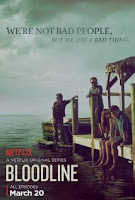 Kundera
explores human desires and fragility in the seven stories contained in this
book (fragility caused by ego, shame or fear).
Naturally one of the greatest desire in human beings is sexual desire. In order to acquire the object of their
desire the characters in this book go to great lengths to overcome their shame or fear. On the other hand, the shame or fear
stops them in their journey leading desire to intensify as unrequited love. Moreover, sometimes ego drives a character’s desire: what
makes one proud or worthy in the eyes of others dictate what one desires rather
than following what is natural to one’s being.
Kundera
explores human desires and fragility in the seven stories contained in this
book (fragility caused by ego, shame or fear).
Naturally one of the greatest desire in human beings is sexual desire. In order to acquire the object of their
desire the characters in this book go to great lengths to overcome their shame or fear. On the other hand, the shame or fear
stops them in their journey leading desire to intensify as unrequited love. Moreover, sometimes ego drives a character’s desire: what
makes one proud or worthy in the eyes of others dictate what one desires rather
than following what is natural to one’s being.Kundera provides knife-sharp analysis of the internal debate that goes on in the characters and really exposes their vulnerability until the reader has nothing left to ponder. I found this approach a bit harsh and brutal at times and felt sorry for the characters who were left naked and empty at the end of the story. The effect of this for me was that it had removed all romantic and magic like qualities of love and it made pursuit of love to be a pathetic attempt by characters to acquire whatever they wanted to fill their void – which may be the intention of Kundera.
The stories themselves did provide an interesting backdrop to make philosophical statements about the greater human condition beyond love and sexual desires. However it had the most appalling portrayal of female characters I’ve ever read. The men were very proud, quite macho and either idealised women as pure and innocent beings or the object of their sexual desires. Despite the philosophical turmoil that was going on, their conscious mind appeared to be only interested in pursuing sexual intercourse. They were completely unaware of their inner dilemmas and lacked any self-reflection which made them drift from behaving one way to the next. That may be the reality and how people generally behave when it comes to relationships and desires where emotions run high.
Over the course of various stories however, the male characters develop. In the first story they are dominated by fear, then the characters grow into being inspired and overcoming their fear, and in the final story, the central male character realises that despite physical pleasures if one fails to pursue spiritual or intellectual endeavours one will continuously feel empty. By contrast Kundera’s women appear to be one of two types: beautiful and insecure or ugly and lecherous. At one point he actually compares a woman to a beautiful horse – a type that can’t be resisted apparently. He promotes the idea that women are pursued for their bodies and a woman that is fat or old does not deserve to be pursued. I realise that this was written in the 60s and it made me appreciate how far women’s positions in film and literature have come along.




